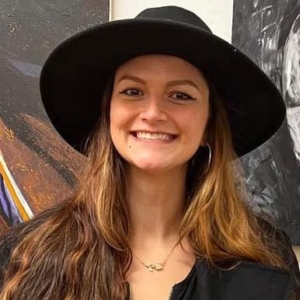Combating Summer Triggers in Recovery
Summer is typically a time associated with beaches, vacations, pools, barbecues, and fun. However, in recovery it can easily become a focus on how your body exists in the heat or the unpredictability of celebratory or vacation foods. Not to mention, there is also the societal expectation to hustle to have a “beach body,” “bikini body,” or “Summer body,” ready in time when simply existing in your body during that season constitutes as all of those.
When Summer comes around, I instinctually start reviewing the wardrobe changes and skin exposure that come with it, even after being four years into recovery. My Eating Disorder (ED) voice tends to gravitate towards these questions:
- How will I wear shorts and tank tops if wearing them could make me feel self-conscious about my body?
- How could I pull off wearing pants and long sleeves without overheating to avoid feeling more self-conscious?
- How can I prevent sweat stains?
- How will I ever show up to a beach in a bathing suit in front of others? Or eat in a bathing suit?
Recovery has taught me that these questions are, in fact, nothing more than my ED voice trying to sabotage the progress I have made. The reality is that Summer is hot, and I will have to come to terms with clothing that is breathable, as well as appropriately fueling my body to cope with the changes in temperature. It does not matter what others think of what I am wearing or eating.
The following is a checklist I made for myself to combat my Summer ED voice:
- Wear what makes you comfortable, whether it’s loose cotton or form fitting spandex
- Pack snacks or meals ahead of time to prevent last minute hunger panic/ triggering food situations (bbqs, beaches, hikes, etc)- you’ll be expending more energy so you need to fuel your body
- Tell someone your concerns ahead of time so they can check in with you throughout the experience
- Keep up with electrolytes- you’ll lose more sodium through sweat and need to stay hydrated
- Do some mindful movement outside: hiking, yoga, walking
- Remind yourself that you’re your hardest critic and others do not see you the way you do when you’re having negative thoughts
- Continue working to dismantle what diet culture says about Summer
Every year in recovery it gets easier to implement these tools and I am grateful for the awareness they have brought me to be actively supporting myself.
Emily McGuigan resides in Philadelphia, PA, and has been in eating disorder recovery for four years now. She received her Bachelor of Fine Arts from West Chester University and her Master of Science in Community and Trauma Counseling, with an Art Therapy Specialization, from Thomas Jefferson University. Emily spent four years working in addiction treatment and currently works as an Art Therapist for veterans and first responders with mild to moderate traumatic brain injuries.





